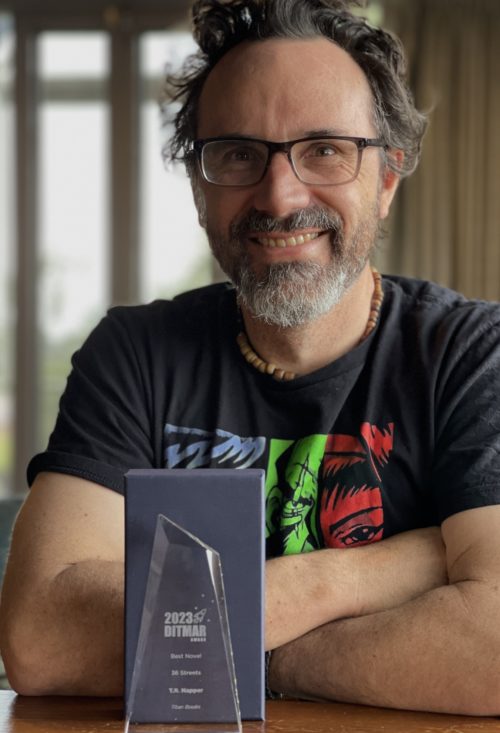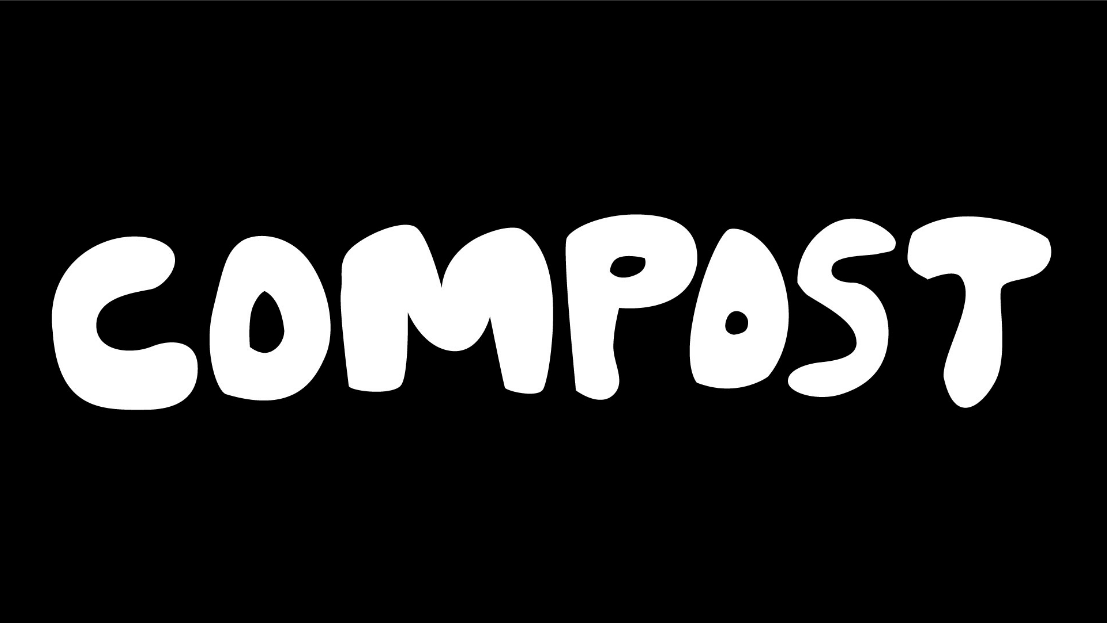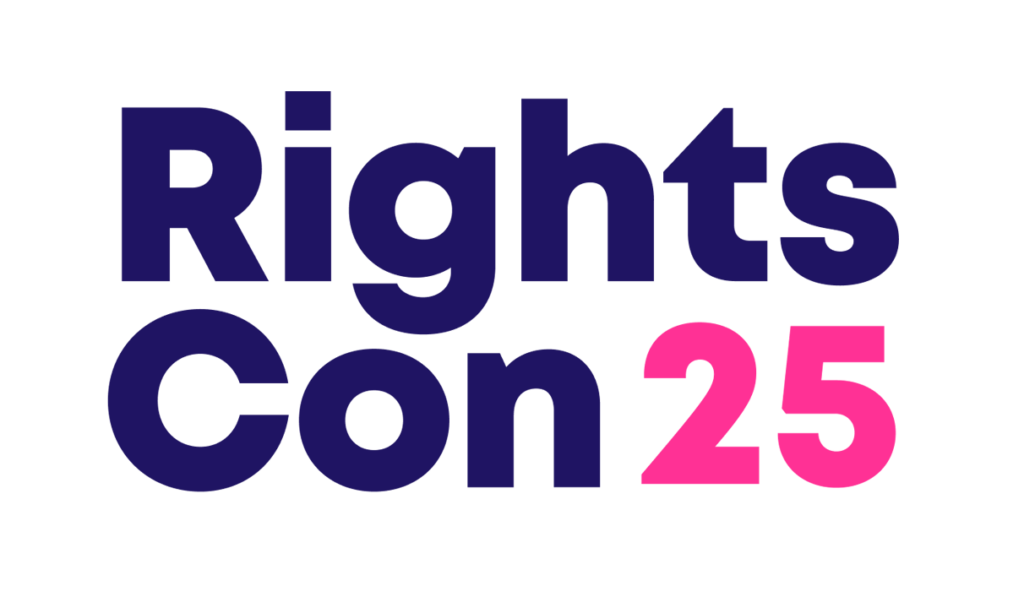STOP SURVEILLANCE COPAGANDA
The toolkit is now live!
Calling all storytellers, authors, filmmakers, and people who want to see more stories that clap back at the encroachment of fascist surveillance tech into our lives: there is a now a toolkit for that.
Compiling analysis and incitement from 100+ digital and human rights activists alongside five incredible anti-surveillance short stories, this resource is available for free throughout the world on the decentralized, censorship-resistant Sutty platform, as well as on Filecoin!
LONGLIST ANNOUNCED
- A Charm to Keep the Evil Eye Away from Your Campervan; Or, Roamin’ Rights by Christopher R. Muscato
- A Tiny Rebellion by Nora Schinnerl
- Azizah’s Angel by D.F. McCourt
- Crisis Actors by Corey Jae White and Maddison Stoff
- Curlews by Cecilia Ananías Soto
- Eye of Theseus by Akis Linardos
- Eyes on the Street by Brian D. Hinson
- Hidden In Your Sight by Sydnee Thompson
- Indecent Innovation by Lynne Sargent
- Murder in the Clavist Autonomous Zone by Rich Larson
- The Seeds of Justice by Chris Hinkle
- Taking Back the City by Christine Phan
Congratulations to all the listees, your impressive work is major inspiration as we move toward the next phase of the project: crafting a toolkit on writing more just fiction in our era of centralized surveillance tech copaganda. The final 5 stories will be announced in January, along with the author who will be joining us at RightsCon.
PROMPT
Between August 29 and November 21, 2024, we are seeking original short fiction stories of 5,000 words or less that speak to the following prompt:
Surveillance technologies are increasingly built into our daily lives without our consent—and are championed in mass media for their power to do so-called good. The truth is, surveillance is mostly used to harm and oppress communities—misidentifying people through facial recognition, targeting families for missile strikes, criminalizing people who seek to assert their bodily autonomy, and facilitating scams and stalkers.
Most “positive” uses of surveillance are straight-up copaganda.
Having such powerful systems centralized in the hands of a wealthy few is bad for all of us. As human rights activists, we’ve wanted to say something for a long time about the ways that fictional worlds are used as propaganda to prop up harmful military technologies that are fundamentally incompatible with basic human rights.
With this effort, our goal is to do one better: to curate examples of stories that accurately deal with surveillance tech, policing, and centralized power—and then use them as a foundation for a free, uncensorable toolkit to help all storytellers bring a more just framework to their dealings with technology. Your story doesn’t explicitly have to center cops, but can rather be about alternatives that tear down the narrative that surveillance and centralized power necessarily equals safety.
All stories submitted should:
- Deal with the centralized surveillance technologies of today, either by debunking them or presenting plausible real-world alternatives.
- Have hope at their core and avoid creating disaster porn, particularly at the expense of traditionally marginalized communities.
- Avoid savior narratives—eg, a lone hacker saves the world with a new technology he invented for a community he is not a part of.
For further grist, check out this brainstorm of starting points the international tech justice-focused Dweb community did for us:
- Why do you care about privacy if you have nothing to hide? Write a story that answers this question so definitively that anyone who reads it will never ask again.
- Imagine different incentives for tech companies beyond surveillance capitalism, different ways of governance that take power from centralized tech or government authorities and put it in the hands of communities. Explore these ideas through concrete institutions or applications that apply to our real world today, like health data, digital identity, license plate readers, banks, local currency, libraries, or activist movements.
- The way tech companies promise convenience through surveillance is tricking us out of our human right to privacy. Challenge society’s addiction to convenience that normalizes surveillance of our every move through pay-with-your-data apps like Google Suite. Further, challenge the theft of crucial resources like time and knowledge that have led to this convenience addiction.
- Solve issues we face today without the need for a centralized authority with a mass surveillance apparatus.
- Show us a story where the de-escalators are the heroes, not the detectives or the spies or the cops or the superheroes.
- What if there were an AI system that actually works for a community you’re a part of, that supports and expands your ability to live in line with your values.
- Decentralized, open-source, community owned and governed technologies triumph over the central power of tech behemoths and authoritarianism.
- _____________ technology, but decentralized and just.
- _____________ technology, but unsurveilled and rights-affirming.
- Social media apps trade a sense of community for our intimate personal data—hijacking our online relationships into a void that, for many, heightens our longing for meaningful connection without delivering it. How can we create better digital structures for sharing appreciation and love? Tell us a story about tech that ritualizes something better than mass surveillance & exploitation of our data.
- What’s hidden in the information we share (like photos or videos or job applications or facial recognition data) that we don’t recognize or can’t even imagine?
- Who has the resources to tell the stories about centralized surveillance tech and its impact on communities? Right now, it’s largely Big Tech & the police. Amid underfunded local news, mass layoffs of journalists, and activist burnout, tell a story that challenges how tech stories are made.
If this section is helpful, find even more by checking out the Dweb Principles or check out Copaganda Clapback: Resources to Fight Back from our friends at MediaJustice.
See author instructions & details below.
WHO WE ARE
This effort is a collaboration between the following organizations, representatives of which will select the top 5 stories for publication:
CREATIVE COLLABORATORS
These folks will decide which of the published story authors will head to RightsCon in Taipei:

Yudhanjaya is a storyteller from Colombo, Sri Lanka who shows up in many different guises – an award-winning author, OSINT journalist, data scientist, occasional game designer and AI programmer.

Chen Qiufan (Stanley Chan)
Chen Qiufan (a.k.a. Stanley Chan) (b. Shantou, Guangdong) is an award-winning Chinese speculative fiction author, and a translator, curator, and fellow of Berggruen Institute, Asia21 next generation as well as Research Scholar for MacMillan Center of Yale University. He focuses on issues of climate change and the environment, artificial intelligence and cybernetic society. His works include the debut novel Waste Tide and AI 2041: Ten Visions for Our Future (co-authored with Dr. Kai-Fu Lee).

T. R. Napper is a multi-award-winning science fiction novelist and short story writer. His work has appeared in Asimov’s, Interzone, The Magazine of Fantasy & Science Fiction, and numerous others. He received a creative writing doctorate for his thesis: The Dark Century, 1946 – 2046. Noir, Cyberpunk, and Asian Modernity.

Seanan McGuire writes things, continuously. It’s difficult to make her stop. She also publishes things, and has released far too many books in the past fifteen years. She likes her cats more than she likes most people, and needs a nap.

DongWon is an agent at Howard Morhaim Literary Agency representing science fiction and fantasy for adults, young adult, and middle grade readers as well as select non-fiction.
NEXT STEPS
December 2024:
Selected authors contacted via email
Early 2025:
Strange Horizons special edition published
February 2025:
RightsCon Conference
May 2025:
COMPOST Magazine Toolkit Published









